How To Save Money As a Small Business Owner
As a small business owner, saving money is crucial to ensuring long-term profitability and success. Finding effective ways to cut costs without sacrificing quality or growth can make a significant difference in your bottom line. At Business Financials Inc., we understand the unique challenges small business owners face, and we’re here to provide practical tips to help you save money and optimize your operations.
1. Cut Unnecessary Expenses
Start by analyzing your expenses to identify areas where you can cut back. Review monthly subscriptions, software licenses, or services you may no longer need. Cancel any that aren’t delivering value. By auditing your spending regularly, you can make more informed financial decisions and eliminate waste.
2. Take Advantage of Tax Deductions
Understanding tax laws and maximizing your deductions can lead to substantial savings. Here are some key tax-saving strategies:
- Home Office Deduction: If you work from home, you may qualify for a deduction for the portion of your home used for business purposes.
- Vehicle Expenses: Track your mileage and business-related vehicle expenses, which are often tax-deductible.
- Retirement Contributions: Contributing to a retirement plan, such as a SEP IRA or 401(k), not only helps secure your future but also provides tax benefits. Be sure to consult a tax professional to fully understand all the deductions available to your business.
3. Go Digital to Save on Office Costs
Switching to digital tools and processes can significantly reduce costs. Instead of maintaining a physical office, consider embracing remote work or using coworking spaces as needed. Additionally, digital platforms for document storage, communication, and project management are often more affordable and flexible than traditional office setups.
4. Outsource When Necessary
Hiring full-time employees for every aspect of your business can be costly. Instead, consider outsourcing tasks like bookkeeping, marketing, or IT services. Outsourcing allows you to tap into specialized expertise on a project-by-project basis, saving you money on salaries and benefits.
5. Negotiate with Vendors and Suppliers
Don’t be afraid to negotiate with your suppliers for better pricing, especially if you're a long-term customer or buying in bulk. Many vendors are open to providing discounts or flexible payment terms. Also, shop around for new suppliers regularly to ensure you’re getting the best deal.
6. Embrace Automation
Automation can help streamline repetitive tasks, saving you time and money. Invest in software that automates payroll, invoicing, customer relationship management (CRM), and other administrative tasks. Not only does this reduce the risk of human error, but it also frees up time for you and your team to focus on growing the business.
7. Implement Energy-Efficient Practices
Lowering your energy consumption can save you a significant amount over time. Simple steps such as switching to energy-efficient lighting, using programmable thermostats, and turning off electronics when not in use can lead to lower utility bills. If you own your business space, consider investing in renewable energy options, such as solar panels, for long-term savings.
8. Bundle Services
Many service providers, from internet to software companies, offer discounts when you bundle multiple services. Combining services like internet, phone, and cloud storage with one provider can lower your monthly expenses. Similarly, insurance providers often offer discounts if you bundle various policies, such as liability, property, and health insurance.
9. Take Advantage of Free or Low-Cost Tools
There are many free or low-cost tools available that can help you manage your business efficiently. Whether it’s accounting software, project management tools, or marketing platforms, doing your research can help you find cost-effective alternatives that provide high value without breaking the bank.
10. Plan for Seasonal Spending
If your business experiences seasonal fluctuations, plan your budget accordingly. During peak periods, set aside some extra funds to cover expenses during slower months. Proper cash flow management is critical for weathering seasonal downturns.
Final Thoughts
As a small business owner, cutting costs without sacrificing quality is key to building a sustainable business. At Business Financials Inc., we specialize in helping small businesses optimize their financial strategies and reduce unnecessary expenses. Ready to learn more about how we can help you save money and grow your business? Contact us today for expert advice and personalized solutions.
THIS ARTICLE IS FOR GENERAL INFORMATION PURPOSES ONLY. BUSINESS FINANCIALS, INC. (BFI) IS NOT ISSUING SPECIFIC FINANCIAL OR TAX ADVICE. PLEASE CONSULT WITH A LICENSED FINANCIAL PLANNER, TAX ATTORNEY, OR ACCOUNTANT FOR ASSISTANCE WITH YOUR SPECIFIC SITUATION. IF YOU NEED HELP, WE INVITE YOU TO CONTACT US. WE WILL BE HAPPY TO MAKE RECOMMENDATIONS OR REFER YOU TO A LICENSED PROVIDER WHO MAY BE BEST SUITED FOR YOUR SITUATION.
Sources:
Money-Saving Tips for Small Business Owners | Lendzi
13 Essential Tax Saving Tips for Small Business Owners (fitsmallbusiness.com)


Email: info@businessfinancials.net
Phone: (540) 932-8560
Fax: (540) 932-8564
2353 Jefferson Hwy
Waynesboro, VA 22980



